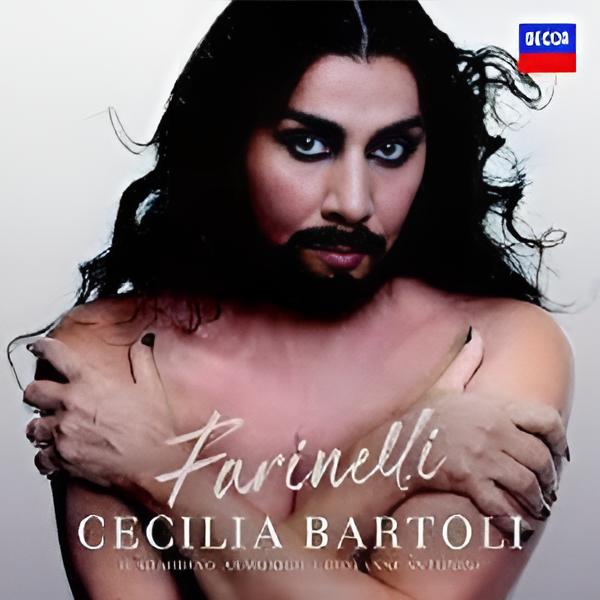Farinelli / Cecilia Bartoli, Giovanni Antonini
What an eccentric CD jacket! In this CD, a collection of arias written for Farinelli, Bartoli seems to have become Farinelli himself. Or rather, she seems to be “the role” of Farinelli plays. In her own words, she has “completely abandoned one’s self”. In the opera world of the time, a male castrato could play the hero or heroine. The repertoire sung by the castrato is now being sung by modern female singers. It is a complicated setting when one thinks about it. Journalists and composers of the same period were generous in their praise of Farinelli. The greatest composers of the day, such as Porpora, Hasse, Broschi, and Caldara, wrote works for him that were either difficult to perform or luscious. The world of baroque opera developed through the mutual influence of performers and composers.
About the CD’s music. The interplay between Bartoli and oboe Pier Luigi Fabretti in the cadenza of the aria “Lontan Dal Solo E Caro… Lusingato Dalla Speme” from Nicola Porpora’s “Polyphemus” is remarkable. Riccardo Broschi, a student of Porpora like Farinelli, accompanied his brother on his London debut in 1726, and later collaborated with Johann Adolph Hasse on the opera “Artaserse” in 1734. There he inserted the aria “Son qual nave ch’agitata (I am like a rocking ship)” which was well received (the song can be heard on Bartoli’s album “Queen of the Baroque”). In the movie “Castrato,” he was portrayed as a bad composer with a complex about Handel. The CD contains two arias from the opera “Merope”, “Chi Non Sente Al Mio Dolore” and “Si, Traditor Tu Sei”. These three pieces were recorded for the first time in the world. #baroque #bartoli #片山俊幸


